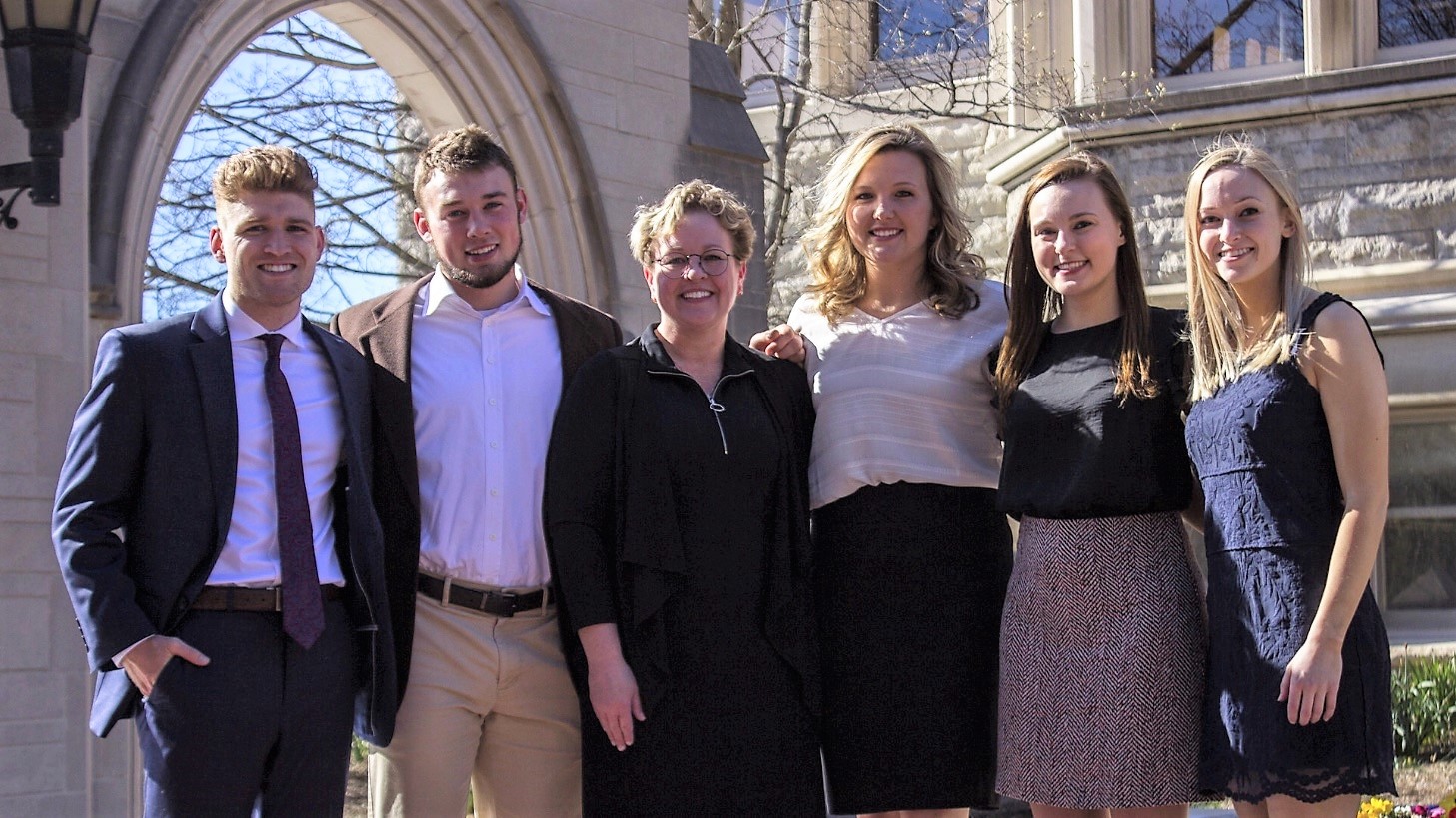A team of five undergraduate honors students from IU School of Nursing on the Bloomington campus learned how evidence can inform nursing practice, not from a journal article or a textbook, but by designing and conducting their own research project.
Undergraduate Honors Students' Research Presented at Two International Conferences

I have seen how research is a crucial part of nursing, and I feel empowered to find ways to improve care.
Elisa Hillman
The students’ descriptive comparative study on perioperative hypothermia was completed under the mentorship of nursing faculty member Dr. Amy Hagedorn Wonder. The team’s innovative work was competitively selected for presentation at two international conferences. The students’ one-hour podium presentation on the study’s results and corresponding implications for practice attracted 250 attendees at the Association for periOperative Registered Nurses (AORN) Global Surgical Conference and Expo in New Orleans in March 2018. That was quickly followed by a 45-minute podium presentation on generating and translating evidence to simultaneously impact nursing education and patient care at the Nursing Education Research Conference (NERC), which was hosted by the National League for Nursing (NLN) and Sigma Theta Tau International in Washington, DC, in April 2018. Manuscripts on each of these topics are currently under review for publication.
Learning about the potential dangers of perioperative hypothermia, first, in clinical and, then, through reading, the students—J. Luke Akers, Andrew Bauer, Amanda Dupnick, Elisa Hillman and Lauren Kinker—felt an obligation to learn more. They enlisted the help of Dr. Wonder to design a research study to further explore the issue. Using a variety of resources available at IU SON and IU, the team successfully navigated every phase of the process from submitting a proposal to the Institutional Review Board and writing abstracts for presentation (at AORN and NERC) to collecting data, analyzing results, developing implications for practice and disseminating their work.
“Learning how to develop research and use it to the fullest extent gives me a huge advantage going into nursing,” said J. Luke Akers, who graduated this past spring. “It gave me knowledge I know I’ll be able to use for the rest of my career as a health professional.”
For Elisa Hillman, who also a graduated this past spring, the research project offered an opportunity to see a different and equally fulfilling side of nursing. “To have the opportunity to experience nursing from a perspective alternative to the bedside has really inspired me,” Hillman said. “I have seen how research is a crucial part of nursing, and I feel empowered to find ways to improve care.”
Results from the students’ work are already impacting practice. The students promptly reported their findings and implications back to the study site. Leadership at the site was very receptive and has already begun using the results to improve patient care. These improvements include using their time in “huddles” to educate nurses on the risks for perioperative hypothermia and ways to prevent it. Graduate-prepared nurses at the study site are also using the results to develop new policies aimed at preventing and treating perioperative hypothermia in a variety of surgical care settings. The study site has since trialed a new warming device and is pilot testing the efficacy of tympanic temperature assessment.
In addition, 210 of the 226 attendees who provided feedback on the presentation at AORN said the study’s results would assist them in improving their practice in a variety of ways, including adding risk factors to the pre-surgery checklist, calibrating thermometers and planning to review-and-revise departmental policies on when and how to assess temperature during the continuum of surgical care. Additional feedback also showed an interest in developing future partnerships with nursing schools to generate additional evidence-based research that would positively impact their practice.
Dr. Wonder credited the impressive team outcomes to the students’ tenacity and commitment to the research project—the bulk of which they completed while attending class full time.
“I’m just so proud of them,” Dr. Wonder said. “We often send students to search existing literature for evidence but offering them an opportunity to generate internal evidence was such a powerful learning experience.”

